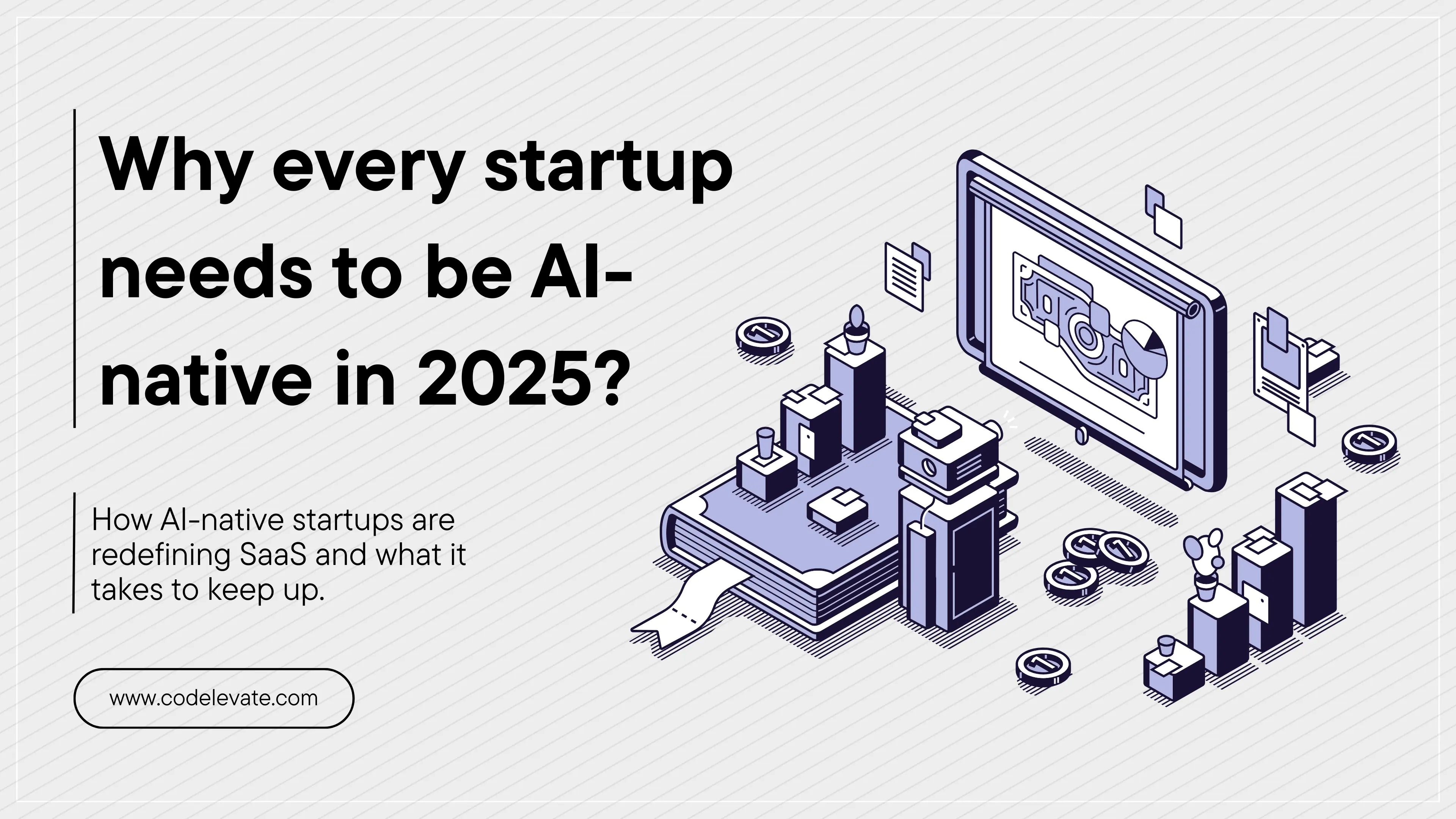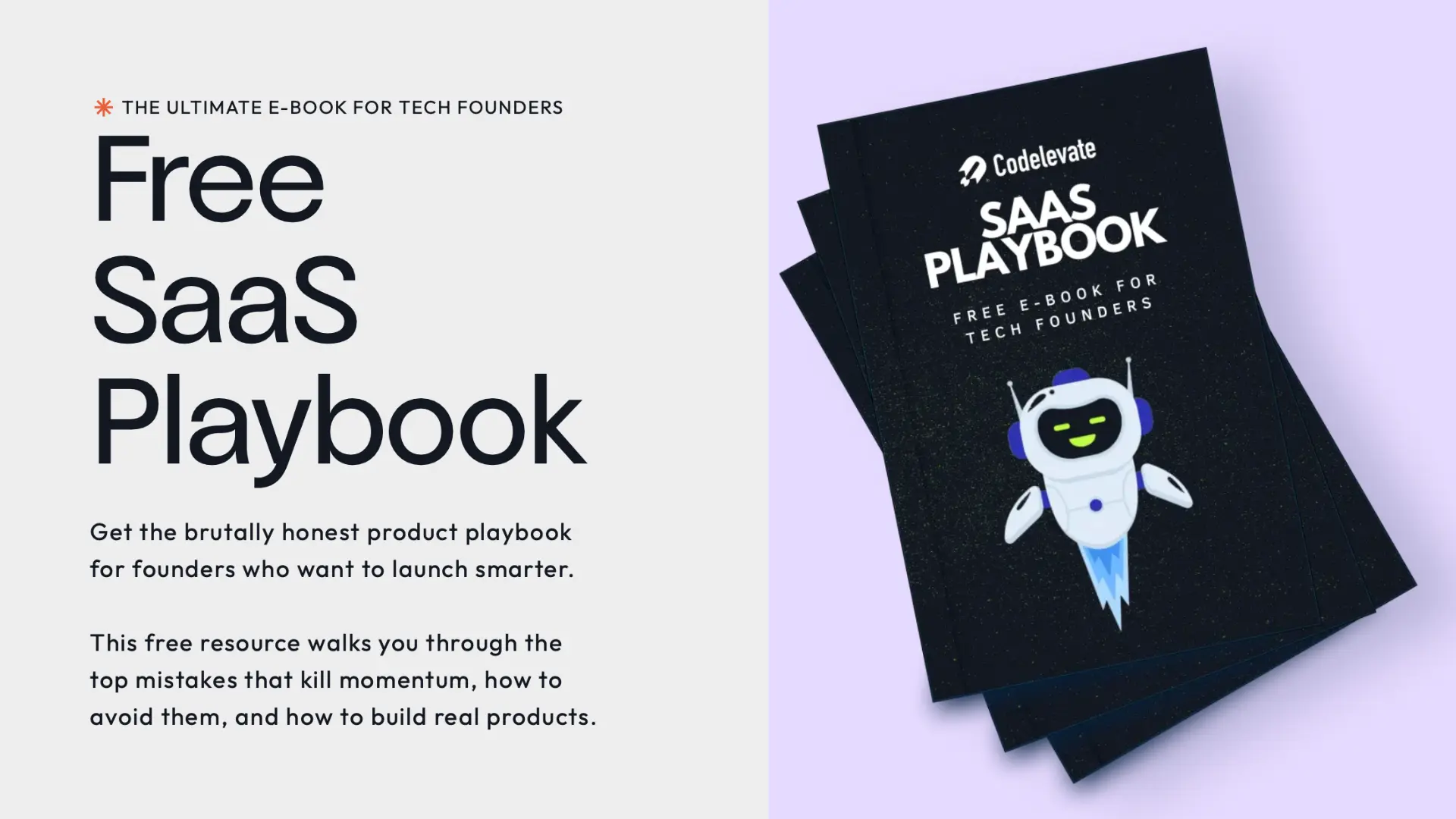Why every startup needs to be AI-native in 2025
We’re standing at a major inflection point in tech. Just as cloud computing sparked the explosion of SaaS startups in the 2000s, artificial intelligence is now laying the groundwork for a new generation of companies—AI-native startups. These aren’t just SaaS with AI features sprinkled in. These are startups that treat AI as the core engine of their business—from product development to customer support, go-to-market strategy, operations, and even internal culture.
For SaaS founders, the rise of AI-native startups signals both opportunity and challenge. The rules are changing fast. And those who don’t adapt risk falling behind. But founders who understand the shift, and learn to play by the new rules, can build faster, leaner, and smarter than ever before.
So what exactly are AI-native startups? What makes them different? And how should SaaS founders respond? Let’s break it down.

1. AI-native = built on AI from day one
An AI-native startup doesn’t bolt AI onto an existing product. It builds with AI as the foundation. That means using AI not just in the product itself, but in how the company operates. Hiring? HireVue and Pymetrics use AI-powered tools to screen and interview candidates. Customer support? Intercom and Ada use AI agents to handle the bulk of interactions. Product decisions? Amplitude and Mixpanel provide AI-driven product analytics.
This native integration gives AI-first companies a major head start. Their products are inherently smarter, more scalable, and often more cost-efficient. They can ship faster, automate more, and extract more value from data.
For SaaS founders, this means AI isn’t just a feature—it’s a foundational advantage. If you’re still thinking of AI as something to “add later,” you’re already behind.
2. Startups must create tangible value immediately
In the AI-native world, the bar for value is higher. Customers expect products that don’t just improve workflows—they want automation that delivers real outcomes. Whether it’s automating accounting with AI, summarizing legal documents, or optimizing sales outreach, the best AI-native products are outcome-first.
This means early-stage products need to do one thing exceptionally well—often better than a human. And they need to do it from day one. There’s less room now for the classic MVP that “kinda works” but relies on a roadmap of future improvements.
If you’re a SaaS founder today, you should ask yourself: What’s the one core workflow you can automate better than anyone else? Can you prove immediate ROI? Can you gather the right data to improve over time?
That’s how you win in this new environment.
3. Speed is the new superpower
Speed has always mattered in startups. But with AI, the pace is accelerating like never before. New models drop weekly. Tooling improves by the day. Entire business workflows can be built—or replaced—overnight.
AI-native startups thrive in this velocity. They constantly evaluate and adopt the latest in the AI stack: vector databases, model fine-tuning platforms, orchestration layers like LangChain, AI agents, LLM APIs, and more. Every employee, whether in product, ops, or GTM, needs to be fluent in what’s new and how to apply it.
SaaS founders can’t afford to move slow. Embrace a learning culture. Make time for your team to experiment. Build fast, ship fast, learn fast. This is how you keep up—and stay ahead.
4. Distribution is the differentiator
Code is being commoditized. What matters now is distribution. Who owns the best data? Who gets in front of customers fastest? Who can convert AI-powered insights into value and scale them?
For AI-native startups, distribution is built into the product. Think of products that get better as more users contribute data or where network effects kick in as AI improves over time. Smart founders bake GTM into their build cycles—often co-developing products with users, gathering feedback in real time, and shipping rapid iterations.
SaaS founders need to think about go-to-market earlier than ever. Don’t wait until you’ve built something “perfect.” Get your prototype in front of users. Iterate based on usage. Leverage AI to personalize outreach, demo at scale, and handle support with fewer people using tools like Freshdesk or Zendesk AI.
The best product doesn’t always win. The best-distributed one does.
5. AI-native companies are capital efficient
One of the most surprising shifts? AI-native startups often burn less capital. With automation handling much of the work that used to require headcount, these companies can scale faster with smaller teams. Some are running multi-million-dollar operations with fewer than 10 people.
That changes the funding landscape. Many of these startups raise a single “lift-off” round and then become revenue-funded. For VCs, this means fewer entry points. For SaaS founders, it means more control—but also more responsibility to execute fast.
If you’re used to raising sequential rounds, rethink that model. Focus on building something so efficient and valuable that it pays for itself. That’s what investors want to see. And it’s what the best AI-native startups are doing already.
6. AI flattens organizations and empowers everyone
AI-native startups tend to be flatter. Why? Because AI gives every employee leverage. A junior marketer can run full-funnel campaigns with AI tools. An operations associate can automate logistics. A product manager can prototype and validate ideas using ChatGPT or Claude.
This shifts how teams work. Roles become more fluid. Strategy isn’t just top-down—it’s happening at every level. Startups can adapt faster because people are empowered to take initiative and AI handles much of the grunt work.
For SaaS founders, this means rethinking how you structure your teams. Can a two-person GTM team do the job of ten? Can your support team become a “feedback engine” powered by AI? Can your engineers work directly with users by shipping AI-enabled features in real time?
Smaller, smarter teams are the future. Build for that now.
7. Every business will be an AI business
Eventually, all successful software companies will be AI companies. The difference is whether you get there first—or get disrupted by someone who does.
Already, AI-native companies are reinventing how markets operate. A healthtech startup personalizes care based on hundreds of factors instead of 10. A market research firm generates synthetic participants with LLMs and skips human testing. A solo founder runs a global business with no employees, just AI workflows.
This is the new normal. AI-native isn’t a trend—it’s a new category. And SaaS founders who fail to adapt may soon find themselves in the same position as on-prem software companies during the cloud shift.
Start thinking of your business as an AI business. What knowledge can you turn into AI-native workflows? What data are you sitting on that could drive automation? What parts of your company can become smarter, leaner, and more responsive?
The faster you answer those questions, the better positioned you’ll be.
Conclusion: SaaS founders must rethink the playbook
The rise of AI-native startups is more than a wave—it’s a paradigm shift. And it demands a new mindset. In the SaaS era, success often meant building incrementally: MVP, raise a seed round, iterate slowly, hire a team, then scale. That path still exists—but it’s no longer the only one. AI-native startups are showing what’s possible when you combine technical talent, relentless focus, and AI leverage. They build faster. They need less. They move smarter. They scale without bloat.
If you’re a SaaS founder, the question isn’t “should we use AI?” It’s: how do we become an AI-native company? That means embedding AI in your product and your ops. It means moving faster than you’re comfortable with. It means using AI to automate, differentiate, and scale. And it means designing for a world where value is delivered by intelligence—human and artificial—working together.
The playbook has changed. And the sooner you rewrite yours, the better chance you have of winning the next wave. Are you building an AI-native company—or waiting to be disrupted by one?
if you need help on building real products, check out our free Playbook for SaaS Founder who want to launch smarter!

Don't know where to start?
Let's have a chat and discuss how to set your company for success!


.png)
.png)
.webp)
.svg)




